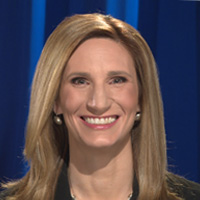Financially Supporting Your Adult Children? Don't Let It Jeopardize Your Retirement
Parents need to learn to set expectations and limits ... for their children and for themselves.


Profit and prosper with the best of Kiplinger's advice on investing, taxes, retirement, personal finance and much more. Delivered daily. Enter your email in the box and click Sign Me Up.
You are now subscribed
Your newsletter sign-up was successful
Want to add more newsletters?

Delivered daily
Kiplinger Today
Profit and prosper with the best of Kiplinger's advice on investing, taxes, retirement, personal finance and much more delivered daily. Smart money moves start here.

Sent five days a week
Kiplinger A Step Ahead
Get practical help to make better financial decisions in your everyday life, from spending to savings on top deals.

Delivered daily
Kiplinger Closing Bell
Get today's biggest financial and investing headlines delivered to your inbox every day the U.S. stock market is open.

Sent twice a week
Kiplinger Adviser Intel
Financial pros across the country share best practices and fresh tactics to preserve and grow your wealth.

Delivered weekly
Kiplinger Tax Tips
Trim your federal and state tax bills with practical tax-planning and tax-cutting strategies.

Sent twice a week
Kiplinger Retirement Tips
Your twice-a-week guide to planning and enjoying a financially secure and richly rewarding retirement

Sent bimonthly.
Kiplinger Adviser Angle
Insights for advisers, wealth managers and other financial professionals.

Sent twice a week
Kiplinger Investing Weekly
Your twice-a-week roundup of promising stocks, funds, companies and industries you should consider, ones you should avoid, and why.

Sent weekly for six weeks
Kiplinger Invest for Retirement
Your step-by-step six-part series on how to invest for retirement, from devising a successful strategy to exactly which investments to choose.
Would you delay your retirement to help pay for your child’s college education? Surprisingly, 1 in 3 parents say they have or would be willing to do so, according to a recent study from Ameriprise Financial.
What’s more, these days many moms and dads are continuing to assist their children with expenses beyond college — footing the bill for everything from weddings to cars and first home purchases.
Such generosity, though well intentioned, could jeopardize parents’ future financial security if it comes at the expense of saving for their own retirement and other critical goals. And it could create a cycle of future financial headaches for the whole family. If parents run out of money later in life because they overspent on their adult children during their working years, they could be left in the undesirable position of relying on those same children for financial support. This burden could fall on adult children at a time when they need to focus on saving for their own retirement.
From just $107.88 $24.99 for Kiplinger Personal Finance
Become a smarter, better informed investor. Subscribe from just $107.88 $24.99, plus get up to 4 Special Issues

Sign up for Kiplinger’s Free Newsletters
Profit and prosper with the best of expert advice on investing, taxes, retirement, personal finance and more - straight to your e-mail.
Profit and prosper with the best of expert advice - straight to your e-mail.
To avoid these unintended consequences, it’s important for parents to strike the right balance between assisting their grown kids financially and saving for retirement. Here are some tips to consider:
Foster financial independence
Teach children the concept of earning, budgeting and investing as early as possible. This may be done by giving them an allowance when they are younger or encouraging them to get a job when they are older. Teach them the important financial lesson of appropriately managing the money they earn, and consider allowing them to make small-scale mistakes along the way to help them learn. Instilling good financial habits in your children can set a positive foundation for their relationship with money in adulthood — and lessen the odds of them having to rely on “The Bank of Mom and Dad” as they grow up.
Have a plan
If providing financial assistance to your adult children is a priority for you, incorporate it into your planning process. Treat the support you expect to provide as a goal, just like retirement. Determine what is a manageable amount to give your children, and set aside money for that specific goal alongside your other priorities. Don’t be afraid to set a limit on how much you are willing and reasonably able to give.
Encourage them to play a role in college funding
Remember that your kids have options when it comes to funding their college costs. They can use their own earnings, apply for scholarships or grants and, if necessary, borrow to meet the costs of a college education. In retirement, those choices aren’t available to support you. Even if you plan to fund college costs, it can be beneficial for your children to have “skin in the game.” Set up a plan that includes contributions from your children, and when they are in their early to mid-teenage years let them know what you expect them to contribute.
Set clear expectations
Communicate with your children how much financial support you plan to give them, if any, during their adulthood. Let them know if any money you give is a gift or a loan, and how long you are willing to help. Don’t be afraid to say “no” if you’re not in a position to help your grown kids financially. Consider other ways you may be able to help them. For example, providing non-financial support, like periodically caring for grandchildren, can be very valuable.
As a parent, it’s natural to want to help your children financially, but be careful not to do it at the expense of securing your own retirement. Prioritize your future and keep it front-and-center. Doing so can help you keep your retirement plans on track, while helping your children build financial independence — a priceless gift to give them.
Profit and prosper with the best of Kiplinger's advice on investing, taxes, retirement, personal finance and much more. Delivered daily. Enter your email in the box and click Sign Me Up.

Marcy Keckler is the Senior Vice President, Financial Advice Strategy and Marketing at Ameriprise Financial. She leads the overall strategy for financial advice at the firm, including the Ameriprise Client Experience and Confident Retirement programs. Marcy has been with Ameriprise Financial (formerly American Express Financial Advisors) for more than 25 years in a variety of positions in financial planning, marketing and interactive development.
-
 Quiz: Do You Know How to Avoid the "Medigap Trap?"
Quiz: Do You Know How to Avoid the "Medigap Trap?"Quiz Test your basic knowledge of the "Medigap Trap" in our quick quiz.
-
 5 Top Tax-Efficient Mutual Funds for Smarter Investing
5 Top Tax-Efficient Mutual Funds for Smarter InvestingMutual funds are many things, but "tax-friendly" usually isn't one of them. These are the exceptions.
-
 AI Sparks Existential Crisis for Software Stocks
AI Sparks Existential Crisis for Software StocksThe Kiplinger Letter Fears that SaaS subscription software could be rendered obsolete by artificial intelligence make investors jittery.
-
 Social Security Break-Even Math Is Helpful, But Don't Let It Dictate When You'll File
Social Security Break-Even Math Is Helpful, But Don't Let It Dictate When You'll FileYour Social Security break-even age tells you how long you'd need to live for delaying to pay off, but shouldn't be the sole basis for deciding when to claim.
-
 I'm an Opportunity Zone Pro: This Is How to Deliver Roth-Like Tax-Free Growth (Without Contribution Limits)
I'm an Opportunity Zone Pro: This Is How to Deliver Roth-Like Tax-Free Growth (Without Contribution Limits)Investors who combine Roth IRAs, the gold standard of tax-free savings, with qualified opportunity funds could enjoy decades of tax-free growth.
-
 One of the Most Powerful Wealth-Building Moves a Woman Can Make: A Midcareer Pivot
One of the Most Powerful Wealth-Building Moves a Woman Can Make: A Midcareer PivotIf it feels like you can't sustain what you're doing for the next 20 years, it's time for an honest look at what's draining you and what energizes you.
-
 I'm a Wealth Adviser Obsessed With Mahjong: Here Are 8 Ways It Can Teach Us How to Manage Our Money
I'm a Wealth Adviser Obsessed With Mahjong: Here Are 8 Ways It Can Teach Us How to Manage Our MoneyThis increasingly popular Chinese game can teach us not only how to help manage our money but also how important it is to connect with other people.
-
 Looking for a Financial Book That Won't Put Your Young Adult to Sleep? This One Makes 'Cents'
Looking for a Financial Book That Won't Put Your Young Adult to Sleep? This One Makes 'Cents'"Wealth Your Way" by Cosmo DeStefano offers a highly accessible guide for young adults and their parents on building wealth through simple, consistent habits.
-
 Global Uncertainty Has Investors Running Scared: This Is How Advisers Can Reassure Them
Global Uncertainty Has Investors Running Scared: This Is How Advisers Can Reassure ThemHow can advisers reassure clients nervous about their plans in an increasingly complex and rapidly changing world? This conversational framework provides the key.
-
 I'm a Real Estate Investing Pro: This Is How to Use 1031 Exchanges to Scale Up Your Real Estate Empire
I'm a Real Estate Investing Pro: This Is How to Use 1031 Exchanges to Scale Up Your Real Estate EmpireSmall rental properties can be excellent investments, but you can use 1031 exchanges to transition to commercial real estate for bigger wealth-building.
-
 Should You Jump on the Roth Conversion Bandwagon? A Financial Adviser Weighs In
Should You Jump on the Roth Conversion Bandwagon? A Financial Adviser Weighs InRoth conversions are all the rage, but what works well for one household can cause financial strain for another. This is what you should consider before moving ahead.